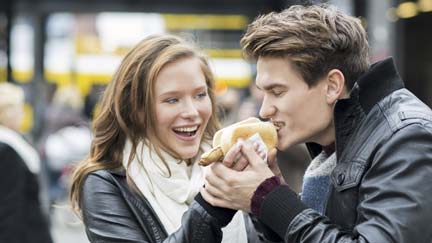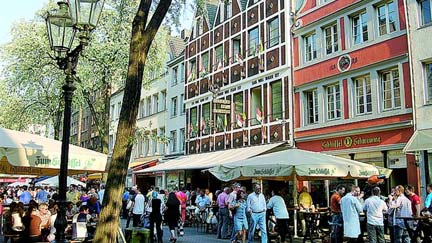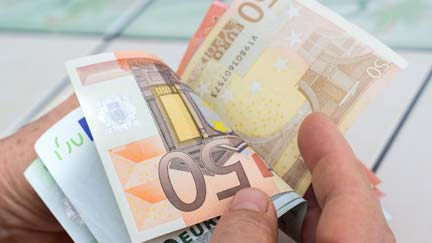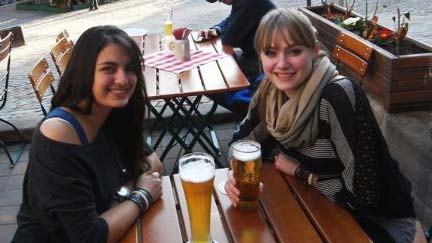Germany Travel Guide
“I love to travel, but hate to arrive.” – Albert Einstein
-
Before You Go -
Tourism -
Places to Visit -
Cities to See -
Blog -
Packing Tips -
Helpful Links
A trip to Germany is a trip through Europe’s past, present, and future. You see modern architecture next to some of the oldest medieval buildings in the world. This gives Germany a unique feel all it’s own, from the new age cities to the tiny villages and hamlets steeped in history, tradition, and charm. This country has given birth to scientists, artists, writers and thinkers.

Visit Germany and explore the forests and mountains of the great outdoors and experience some of the best skiing in the world. In the urban centers, explore the nightlife in Germany of clubs and beer halls, try hearty and delicious German foods, and take in the art scene. The best part about Germany is a trip there can be both uniquely German, and uniquely you; no matter where your interests lay, Germany has an incredible experience to offer.
Get Email Travel Deals
Sign up for our emails to receive travel deals, news, contests and special offers.
(You can opt out at any time.)
5 Things to Know Before You Visit Germany
Language
They speak German, (or as they say, Deutsch) of course. It’s a great language filled with huge compound words, and is a close cousin to English. Like almost every european country, the big cities will have more people that speak English, but some of the coolest sights are in the German countryside; learn a few phrases, and while you’re at it download a translation app. Quick tip; the german letter “ß” is called an “eszett” and is pronounced like an “S” and not a “B”!
Currency & Tipping
Germany uses the euro (€). Get your bank to exchange some money for you before you go, so you have it as soon as you arrive. Ask them ahead of time, sometimes your bank will have to “order” euros. You’ll need cash; Germany is a cash culture, especially outside the cities. Tipping in Germany is pretty straight-forward; if you have good service, tack on 5-10%. Tipping is less relied upon than it is in the US, but it’s still a nice gesture to leave something.
German Cuisine
German food is world-reknown for being savory and filling. We have to tell you right now, you’re going to need to try it all. Everything has a “deutch” name though, so here are some definitions of foods you’ll find: Bratwurst, a traditional sausage. Currywurst, a bratwurst served with spicy ketchup and curry powder. Sauerkraut, fermented shredded cabbage. Spätzle, noodles from southern Germany. Schnitzel, meat pounded thin and then fried. Save room for a pretzel, too.
Tech Tips for Germany
Free access to WiFi, or W-LAN as it’s known in Germany, is kind of spotty. There was supposed to be free WiFi all over central Berlin, but a strange law made those plans fall through. It should be coming back in 2016, however, but that’s the climate of free WiFi access in Germany; it might be a good idea to rent a WiFi device so you just always have some access. Before you go, grab an outlet adapter from a travel store, European outlets are different from American outlets.
Cultural Differences
There aren’t any huge cultural hurdles to jump when you head to Germany, but there might be a few curveballs. Oftentimes people will give you their last name, not their first, during introductions. The “first” floor in a German building is actually the second floor, because they count the ground floor as “floor zero.” Germans are very punctual people, so if you plan on meeting people, make sure you’re on time. Nothing too serious too keep in mind, just a few differences.
Tourism in Germany
When is the best time to visit Germany?
Germany has all four seasons, and they come in force. Summers are hot, winters are cold, and spring and autumn are mild. Visiting at each time has it’s benefits and drawbacks. Late September and early October will give you big festivals like Oktoberfest, which draws a huge amount of tourists every year. Summer will give you great weather to see the landscapes, and there is plenty of hiking and sightseeing to do out in the German countryside. Winter can be cold and snowy, but around December there are dozens of magical christmas markets that open up, and a small german village square suddenly looks like it’s straight from a christmas carol. Anytime is a good time to visit Germany, with so many things to do, just make sure you pack for the weather.
Is it safe to travel to Germany?
Germany is a very safe country to visit, and per capita the crime rate is lower there than in the US. There have been a few tragic occurrences there over the past few years, however, and the police might ask for your ID at big public gatherings. As always while traveling abroad, keep an eye on backpacks, purses, and unattended phones. It’s just a good habit to have, keeping an eye on stuff that could get picked up by anyone. Another good habit; knowing a few emergency phone numbers, just in case. Here are a few below;
- Police: Dial 110
- Fire and Ambulance: Dial 112
- US Embassy in Berlin: Dial +49 30 83050
Places to Visit in Germany
If you don’t know where to go in Germany, don’t worry about it. Everywhere you go will have great food to eat, castles to see, and great people to meet. If you’re traveling across Germany, there will be no limit to the places you can take in incredible sights, even if you need budget travel tips.
Neuschwanstein Castle
Sitting atop a hill is the inspiration for Sleeping Beauty’s castle, Neuschwanstein. Built by the “Swan King” Ludwig so he could escape the day-to-day affairs of his kingdom, the castle now offers unreal views.
Mercedes-Benz Museum
129 years of auto history are within the sleek, ultramodern walls of the Mercedes-Benz Museum. You don’t have to be a gearhead to enjoy the exhibition that goes from horses all the way to modern day self-driving cars.
Andechs Brauerei
This epic brewery run by monks is the perfect day trip to take outside Munich. You can hike up the scenic hillside and head into the monastery, where the monks grow all the ingredients for their “beir” within the walls.
Miniatur Wunderland
Need a bit of whimsy in your trip? This museum is a collection of super detailed miniature landscapes. It’s almost like a “Where’s Waldo” that you can walk around in, with details like Superman hidden in the models.
Gretchen Club
Looking to get wild in Berlin? Look no further than one of the best EDM clubs in Germany. It has vaulted ceilings being held up by roman columns, packed dance floors, and a reputation for booking the best DJs and music acts around.
Nuremberg Christmas Market
At the end of November, the square in Nuremberg transforms into a Christmas miracle. This market is all lights and music. There are a lot of christmas markets when you travel Germany around this time, but this one is at the top of the list.
Cities to See in Germany
Cities in Germany vary greatly, depending on their history. Some got hit hard during World War II, and had to be rebuilt, so they have a newer feel. Some are the exact opposite, and feel almost like a medieval city retrofitted to function as a modern city. And then there's Berlin, which has such a tumultuous past that the city is split into different-looking sections.
Berlin
The capital of Germany is a place of historical monuments, universities, museums, music venues, festivals, nightlife, and a thriving modern arts scene. Berlin has legendary night clubs, so pack your clubbing clothes and get out there. Tip to getting into the better night clubs; knowing a few German phrases will go a long way with the bouncers there.
Frankfurt
A quieter city that happens to be the financial capital of Germany, travel tips for Frankfurt will tell you it's a modern city with a modern feel; not as fast-paced as Berlin, and not as historic as Munich. You might find yourself there because Frankfurt airport is often the cheapest way to get into Germany, but spend some time checking out the great shopping and the Museum of Modern Art.
Munich
Munich is a sprawling city in southern Germany can offer a little bit of everything. During the day, take a bike tour around the city and see the giant cuckoo clock in Marienplatz. In the evening, hit the Hofbräuhaus, THE classic German beer hall. At night, head over to the Schwabing district, located near the Ludwig Maximilian Universitaet, to hoist a glass with locals.
Cologne
Spelled “Köln” in Germany, this city was hit hard during World War II, and built up again. It’s history makes the survival of the gothic Cologne Cathedral even more inspiring. This city is the “cultural capital of the Rhine” with more than thirty museums and hundreds of art galleries. Do some exploring and hunt down the medieval buildings and city gates, too.
Hamburg
This port city on the river Elbe is criss-crossed with canals and dotted with the remnants of the medieval city it was in olden days. If you’re feeling adventurous, check out the Reeperbahn, Hamburg’s Red Light District located in St. Pauli. It’s filled with bars and nightclubs and, ahem, a sex museum. It’s called Hamburg’s “sinful mile” for good reason.
Germany Blog Posts
Dusseldorf, Hidden Gem

With 51 countries to explore it can be tough to choose what city to visit next – we know. But visiting the German city of Dusseldorf is one you do not want to miss!
Oktoberfest in Germany
Prost! In mid-September, hordes of thirsty Germans and tourists crowd into tents in a field in Munich, and celebrate Oktoberfest. The festival opens with a parade, and after that there’s beer, rides, beer, food, beer, and more beer. Fourteen of Munich’s best breweries set up massive tents, and everyone crowds in, toasting each other by shouting “Prost!” and drinking massive steins of beer.
Get in to Oktoberfest. The Oktoberfest field, called Theresienwiese, will be hard to miss. Don’t try and drive there, or take a taxi; it’ll be a traffic jam. Instead, take the trains, and get in stress-free. The festival is fenced off, with nine entrances, but it doesn’t cost you anything to enter. This is perfect if you’re not a beer drinker, but just want to see the festivities.
Get a table. Oktoberfest drinking isn’t like drinking at a regular bar. You need to be sitting at a table to get served, instead of just flagging down a bartender. That means your best bet is to get to the beer hall a little early (before noon) and claim a spot. Don’t sweat it too much, you just need a seat. Once the day gets going, table-hopping starts happening and you can move around.
Party smart. Oktoberfest can be crowded and crazy, so it’s necessary to plan around the crowds. Aim for a mid-week trip and get there before noon. Weekends will be jammed, and a lot of tents will require reservations to sit down, if you’re in a group of more than three people. If you’re two or three thirsty travellers, you’ll have to wait for someone to get up and slip into their spot.





